It’s been a couple of weeks since Number One on the Call Sheet came out on Apple TV, and I still can’t stop thinking about it. Split into two parts, the doc explores the evolution of Black Hollywood from the POV of some of its most successful leading actors and actresses. Never before have we had so many of our biggest film stars come together on one project to give us their honest feelings about the industry. I’m talking Denzel Washington, Viola Davis, Morgan Freeman, Whoopi Goldberg, Jamie Foxx, Halle Berry, Will Smith, Angela Bassett — just an endless array of top-tier talent.
Now I know that as an entertainment journalist who has spent most of my career reporting on Black Hollywood specifically, I am the target audience for this kind of stuff. But I honestly cannot recommend this documentary enough. Not only is it full of stories we’d never get to hear anywhere else (like Eddie Murphy talking about the foolish but hilarious financial advice he’d get from James Brown), and a level of vulnerability so deep (from the women especially) it will bring you to tears, but I’ve also never seen such a comphrensive compliation of career strategy shared by so many successful creatives at once. Acting may be their medium, but the things that worked for them can be applied to many different careers. And as we enter our umpteenth once-in-a-lifetime recession, I feel it’s important to glean as much career wisdom as possible. So I compiled some of the best gems I caught while watching and decided to share them with you all in hopes that at least one of them helps each of you as you navigate your professional pursuits.
[Note: This post is a bit large because of the photos so you may have to click “view entire message” or something like that if it gets cut off in your email inbox]
Whoopi Goldberg: When doors won’t open, get creative
After a long stream of failed auditions, Whoopi says she got tired of constantly being told that she couldn’t do what she knew she could do. But instead of giving up, she stopped waiting for permission to perform and created her own opportunity by writing a one-woman show for herself. Eventually, her show got noticed by someone who had the power to move it to Broadway, where it went on to garner national press. One day, she was asked to perform the show for Steven Spielberg, who was gearing up to direct a film based on Alice Walker’s The Color Purple. Whoopi shared with him that she had coincidentally written a letter to Alice Walker after reading her book, asking to be considered if they ever turned it into a movie. Spielberg said Ms. Walker had told him about her letter and that they wanted to offer her the role of Celie. The movie would go on to become the Oscar-nominated breakout performance that helped launch her career. A break she got from finding her own creative way to show the industry her talent, and not being afraid to shoot her shot early. It’s a strategy she had to continue even after her first Oscar nomination.
“There’s no guarantee that you’re going to work. Being the best you can be isn’t enough for us. You have to get creative,” she said in the doc. So her next unorthodox strategy was to go and find projects that were greenlit but stalled because the proposed leading actor had decided not to do it for whatever reason. Her entire first string of movies: Jumping Jack Flash, Burglar, Fatal Beauty, and yes, even her iconic Sister Act films, were only given to her because Shelly Long, Bruce Willis, Cher, and Bette Midler had turned down starring in those movies first.
(As someone who knows Sister Act 2 word for word I can’t thank Whoopi enough for her ingenuity, because I know for damn sure we wouldn’t have gotten that kind of sequel if there wasn’t a black lead involved.)
“Know who you are and what you do and believe that you have the right to do it so you can keep making steps forward no matter how many people want you to disappear.” — Whoopi Goldberg
Eddie Murphy: Don’t be afraid to build a new blueprint
There is nothing standard about Eddie’s career trajectory. He skyrocketed to fame at a time when no other black comedian had done so. His first TV role as a cast member on Saturday Night Live remains the only audition he’s ever had to do in his entire career. (He noted that he’s likely the only actor who can say that — a flex!)
In the doc, he says he always believed he would be famous, but early on, he had to realize he was building a brand new lane for black men in Hollywood and be intentional about doing so. Someone who helped him understand that was Sidney Poitier, whom he had reached out to for advice when he was offered the role of Alex Haley in Roots. Eddie says that Sidney’s response was, “You are not Denzel (Washington), and you are not Morgan (Freeman), you are a breath of fresh air — don’t fuck with that.”
Mr. Poitier saw that, for whatever reason, Hollywood was embracing Eddie in a way it had never embraced a black man before. Giving him parts in mainstream projects that weren’t steeped in race and struggle. He was becoming a new possibility model and needed to lean into that by avoiding roles that would risk him getting put back into that box. This meant creating a new blueprint instead of following in the footsteps of those who came before him. From then on, Eddie says he made a point to pick characters that weren’t usually played by black leads. It’s that intention, and the disciplined work ethic he picked up early on from doing SNL, that he credits for his legacy.
Oh, and one more quote that I loved:
“When I was young, success was just making lots of money… I know a lot of rich people who are miserable people… I’m no angel, but what stopped me from going over the edge any time is I’ve always been grounded spirituality.” — Eddie Murphy
Will Smith: Have a clear vision and be relentless in your pursuit of it
Will was inspired by the blueprint laid by those who came before him, but was determined to take the baton and put his own spin on it. “I told my team I wanted to be Eddie Murphy in Star Wars,” he said. (I screamed when he said that because it made so many of his movie choices make sense lolol. Not Sci-Fi Eddie!)
He went on to add that the central idea for him was that his movies had to be global. Something he was able to pull from the white action stars of the time that inspired him, like Sylvester Stallone, Bruce Willis, and Arnold Schwarzenegger. The latter of whom he went to directly for advice and was told, “You’ll never be a movie star if your movies are only successful in America. Your movies must be successful everywhere on Earth.” Will’s hurdle would be that movie studio heads didn’t believe that black people transfer globally (a struggle black actors face today *laughs in Black Panther making over a billion dollars globally*). Because Will had toured the world performing as a rapper, he knew this to be false from experience and pushed against the notion. He became determined to become the biggest movie star in the world and didn’t want to do “a second of anything” that was going to prevent his goal. He credits the global success of Bad Boys and Independence Day with setting the trajectory of his film career. “The questions were gone after that,” he said.
“I lived a very disciplined life and made everyone around me do the same. If you’re not about the mission, you can’t be here.” — Will Smith
Halle Berry: Defy stereotypes
Beauty standards understandably played a part in all the women’s career journeys. Halle acknowledged that her looks opened certain doors for her in entertainment, but it also made people want to typecast her based on her looks. To circumvent the notion that she was only a pretty face, she’d work on her acting with groups like Chicago’s Second City Improv, practicing on stage each night, learning how to improve her skills. She’d also take auditions for the stereotypical characters directors wanted her for, and then ask to try out for a different part in the room. For example, Spike Lee wanted her to audition for one of the wives in Jungle Fever, but when she got there, she asked if she could audition for Vivian, the drug addict, and blew Spike away. He immediately cast her for the role.
SN: The women’s episode also discusses how Halle Berry remains the only black woman to ever win the Academy Award for Best LEAD Actress in a Motion Picture. All the women, including Halle, were very candid about how disappointing it is that no progress has been made in that category despite the number of worthy performances that have been nominated. It’s given Halle a different viewpoint about how much importance we place on mainstream accolades as black creatives; her advice on that also stuck with me:
“The system is not really designed for us, so we have to stop coveting that which is not for us. ‘How do we touch the lives of people?’ That’s fundamentally what art is for.” — Halle Berry
Jamie Foxx: King of the Pivot
Jamie truly embodies the power of the pivot. What I love most about his strategy, born from determination to make it somehow, someway, is that if things had gone as planned, we may not have ever learned how multifaceted of a talent he truly is, and that’s the very thing that sets him apart from all his peers.
In the doc, he explains that he grew up with dreams of wanting to be a singer, the next Lionel Richie to be exact, but when music didn’t initially kick off for him, he decided to pivot and do comedy, landing his first big break as a cast member on In Living Color. Doing stand-up and sketch comedy on TV led him to pivot to comedy acting, ultimately resulting in his hit sitcom The Jamie Foxx Show. From there, film opportunities began to come his way, including Any Given Sunday, which he says changed the game for him as an actor. “I couldn’t believe the freedoms of it,” he said of getting to play a dramatic role. The experience made him look forward to each character he got to play. By the time he got to his Oscar-winning performance as Ray Charles, he had figured out his superpower of being able to completely transform into whatever character he took on. His artistic goal became intentional over time: “I want to be able to look at every role I play and see that I disappeared,” he said.
There’s a lesson in the fact that what Jamie initially viewed as a detour or secondary plan helped him discover gifts he would’ve never known he possessed otherwise. Sometimes the blessing you’re praying for is tucked inside the pivot you’re afraid to submit to.
Denzel Washington: Focus on the work
Denzel is in his black uncle era, and I have been enjoying every minute of how candid he’s become during press tours. That said, it also has him giving very black uncle advice like, “IDK how I did it, I just did it!” lol. He’s always going to remind you that he’s not a movie buff, never had plans to be a star in Hollywood, and considers himself more of a thespian because theater is the actor’s medium not movies (and I mean he is breaking Broadway box office records right now in Othello so respect!). But once director Reginald Hudlin got past that usual spiel, he did get Denzel to break us all off a short but useful bit of reflection. He said he’s never paid attention to what project would make him a star. He has just focused on doing the best he can with the abilities he’s been given.
“It really comes down to the work.” — Denzel Washington
And while that may feel obvious, Jamie Foxx adds that it’s something many of his generation of actors have always appreciated Denzel reminding them of, because they often get distracted by the fame of it all. But he is proof that the most impactful catalog of work doesn’t come from trying to be famous; it comes from focusing on your craft.
Morgan Freeman also echoed Denzel’s mindset during his interview, emphasizing that he personally always aims to be seen as an actor over a movie star. The primary difference? One is acting, the other is reading copy. “Some actors are celebrities… different costume, yes, but different persona, no. You know them,” Freeman said.
Viola Davis: Be unforgettable
There aren’t many opportunities for a middle-aged, dark skinned, black woman in Hollywood. Viola Davis understood that and decided to deal with what few roles were out there for her by turning the scraps into masterpieces. No matter how small or inconsequential the role, she gave each of them her all to ensure her performance was remembered. And that’s exactly how she nabbed her first Oscar nomination from a 10-minute performance in Doubt, in which she managed to steal the entire scene from Meryl Streep.
“Sometimes you have to get moldy clay and shape it into something beautiful.” — Viola Davis
Kevin Hart: Your big break won’t always come when you expect it
All of Kevin Hart’s original starring roles were duds (his words, not mine). His first TV show, Big House, which he wrote and starred in, Paper Soldiers, and Soul Plane were all projects he expected to make him pop, but none of them got him to the level of fame he has today. The most popular of all his initial movies, 40-Year-Old Virgin was the one he least expected to get any notice from. He had auditioned for the role of Jay, but lost to Romney Malco and ended up with a smaller role. When he watched the film, he saw how much better Romney was than he and decided to take more acting classes to get better, so that when the next opportunity came, he’d be ready. He also went back on the road to do stand-up as a strategic move to build his fan base. After the major success of his comedy tours and specials, he was able to come back to Hollywood with a revenue attached to his persona as tangible proof for producers of what he could do. Will Packer recognized that and gave him his role in Think Like A Man, which he was able to shine in because of the work he’d put in to improve.
Preparation met opportunity, and the rest was history.
“The things that are going to act as propelling moments in your career, you’re not going to see [at first]… stay ready.” — Kevin Hart
Dwayne “The Rock” Johnson: Lean into what makes you different
It took a while for The Rock to find his footing in Hollywood. He had come from the WWF and was initially trying to do whatever he could to make people look at him differently from his wrestling persona. He says his north star was Will Smith, so he thought he needed to get leaner and conform in order to appeal to directors and producers for those kinds of roles. But he found himself getting kicked around, doing movies like Tooth Fairy and The Game Plan that weren’t accomplishing his goal. Eventually, he says he had this aha moment where it clicked that he was never going to be like the actors he was trying to emulate, and that he needed to be himself and lean into what made him different. The first role he approached with that mindset was Hobbs in Fast Five. From there, things began to move in the direction that led to him becoming one of the wealthiest black actors in the world.
“A funny thing happened [once I stopped trying to conform], Hollywood conformed around me.” — Dwayne Johnson
Marlon Wayans: Don’t wait on someone to bet on you
The youngest of the Wayans brothers learned from watching his older siblings that you have to be an undeniable force of nature to make it in the entertainment industry. Like them, he learned how to do it all (write, direct, produce, etc.) out of necessity, so he could create his own opportunities. In the doc, he says that success is the road you travel, and you can either wake up each day and work toward your dream or complain.
“You’re as great as you work to be.” — Marlon Wayans
Daniel Kaluuya: Think of your career as a piece of art
When you zoom out and look at the big picture of your legacy, what do you want the overall message or journey to depict? It’s a good compass to keep in mind as you make choices throughout your career about what creative projects you decide to do or not do.
“I find it strange that people in the creative arts don’t handle their careers creatively. My filmography is an art piece. That’s how I see it.” — Daniel Kaluuya
Whew, ok I’ll stop here but there’s so much more in the doc — go watch it! Streaming on Apple TV+ now!
Sincerely,
Sylvia


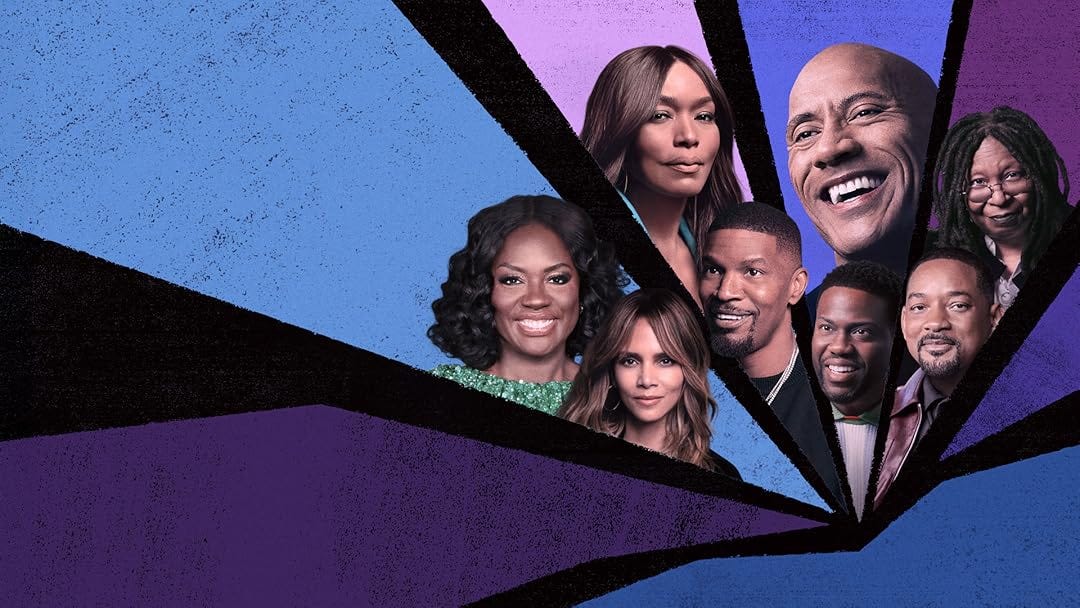
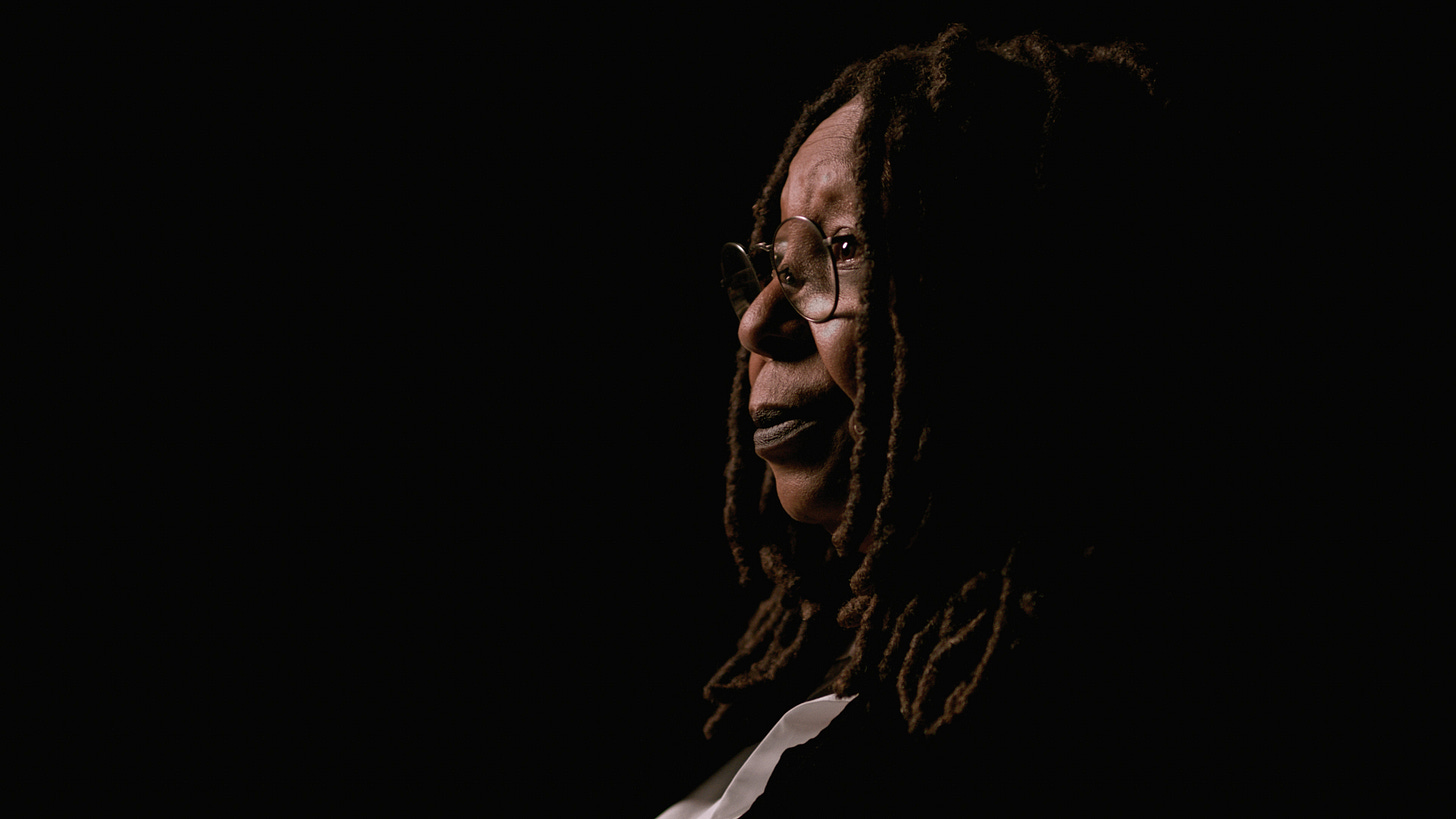
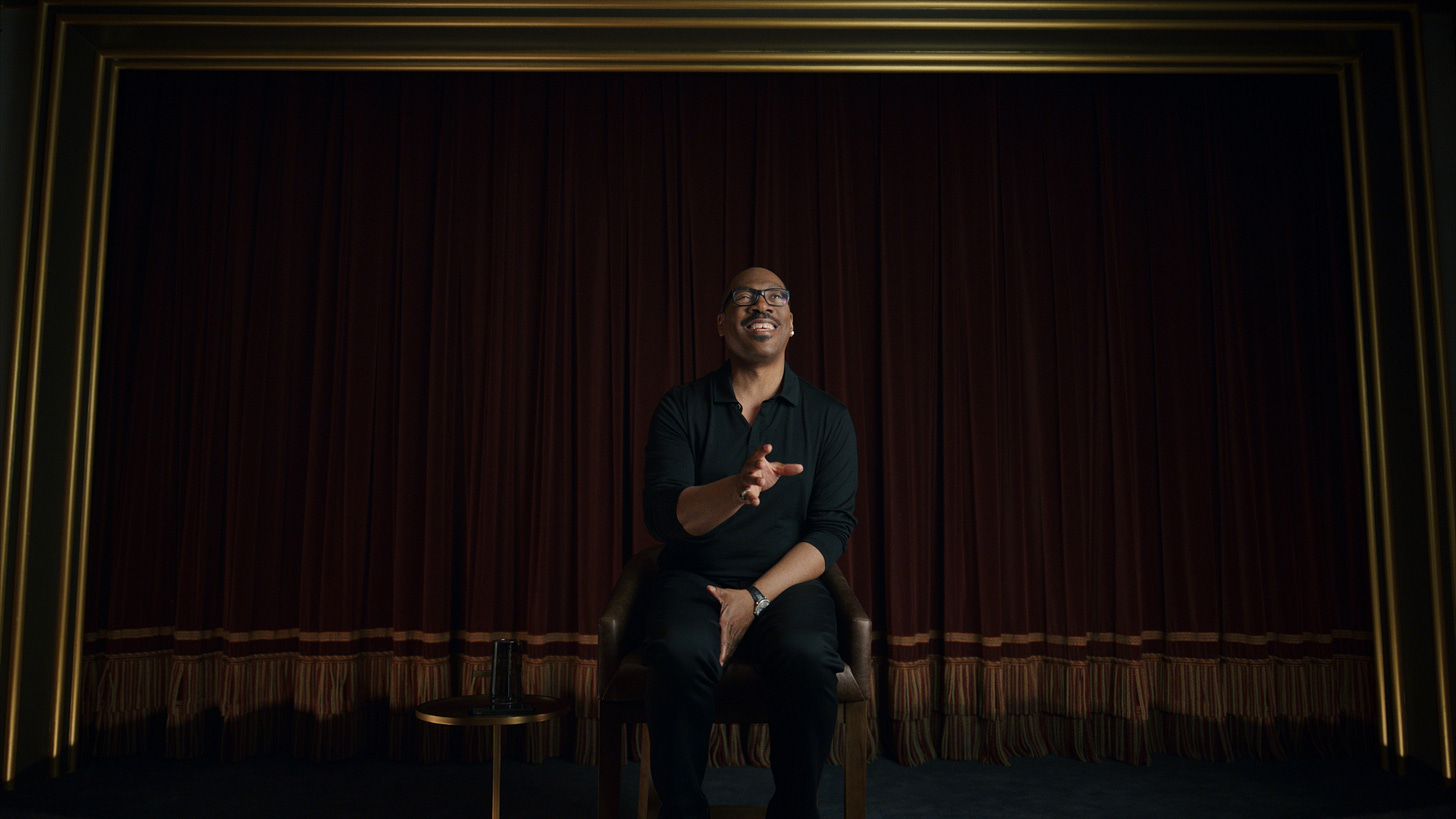
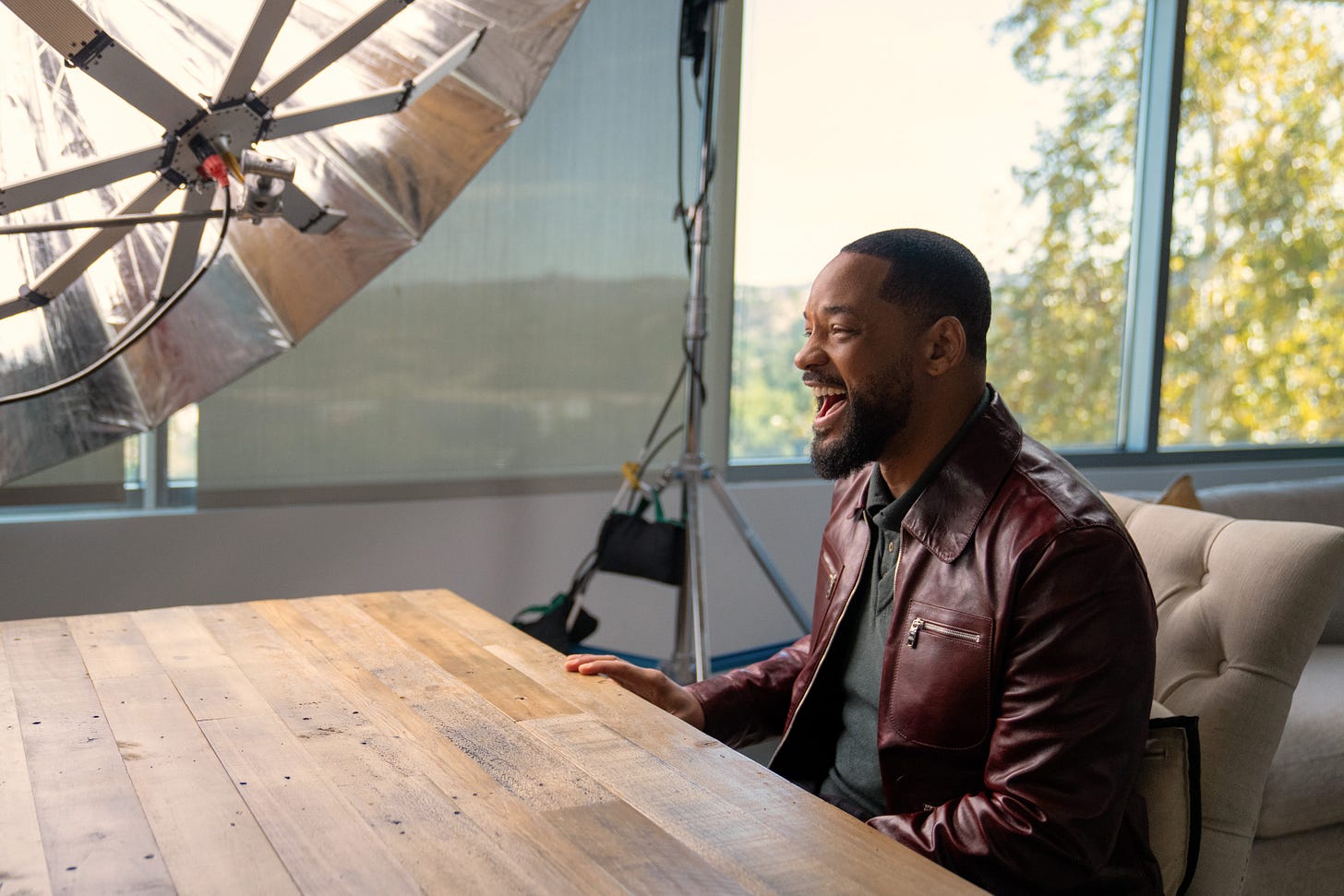
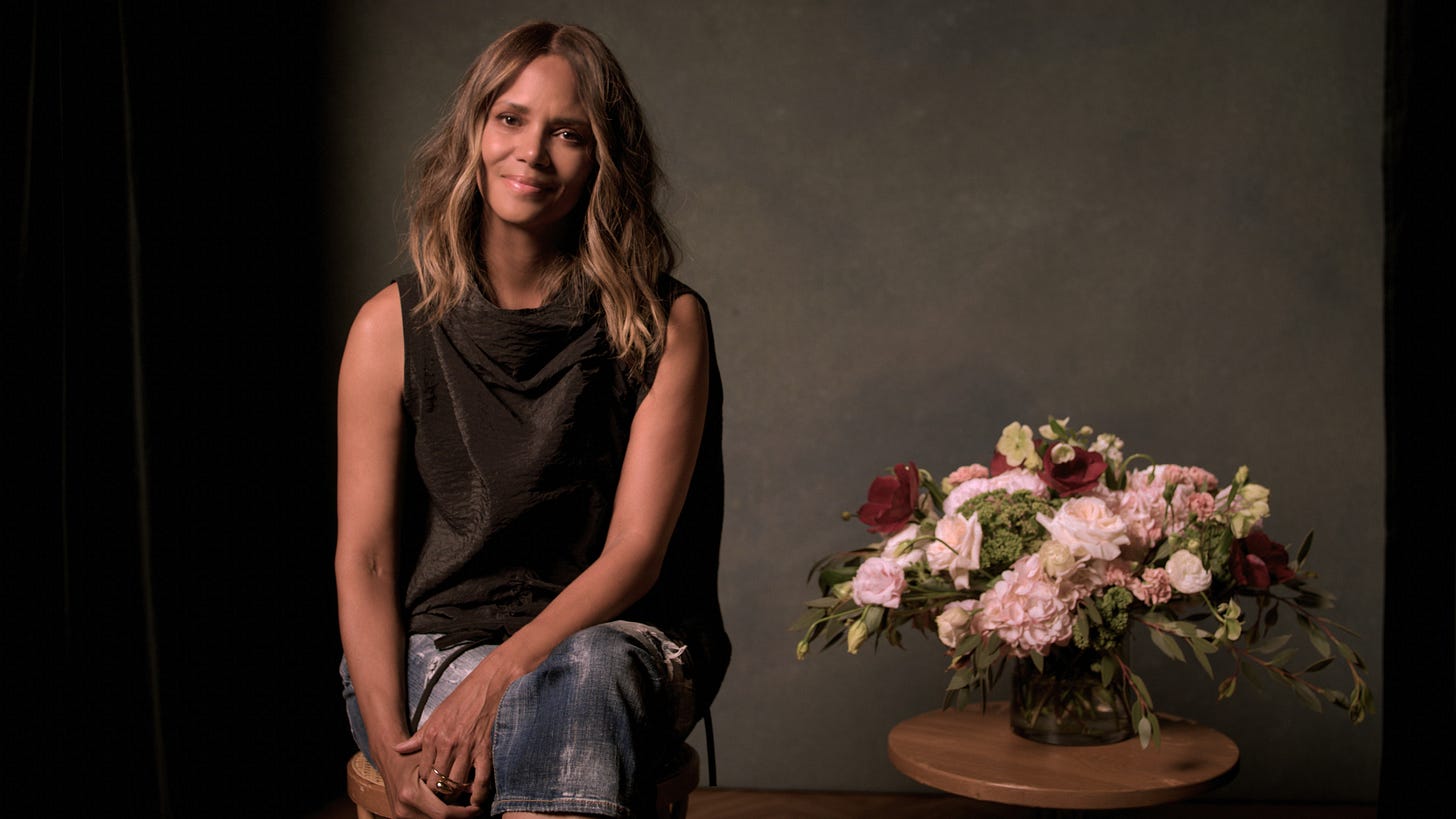
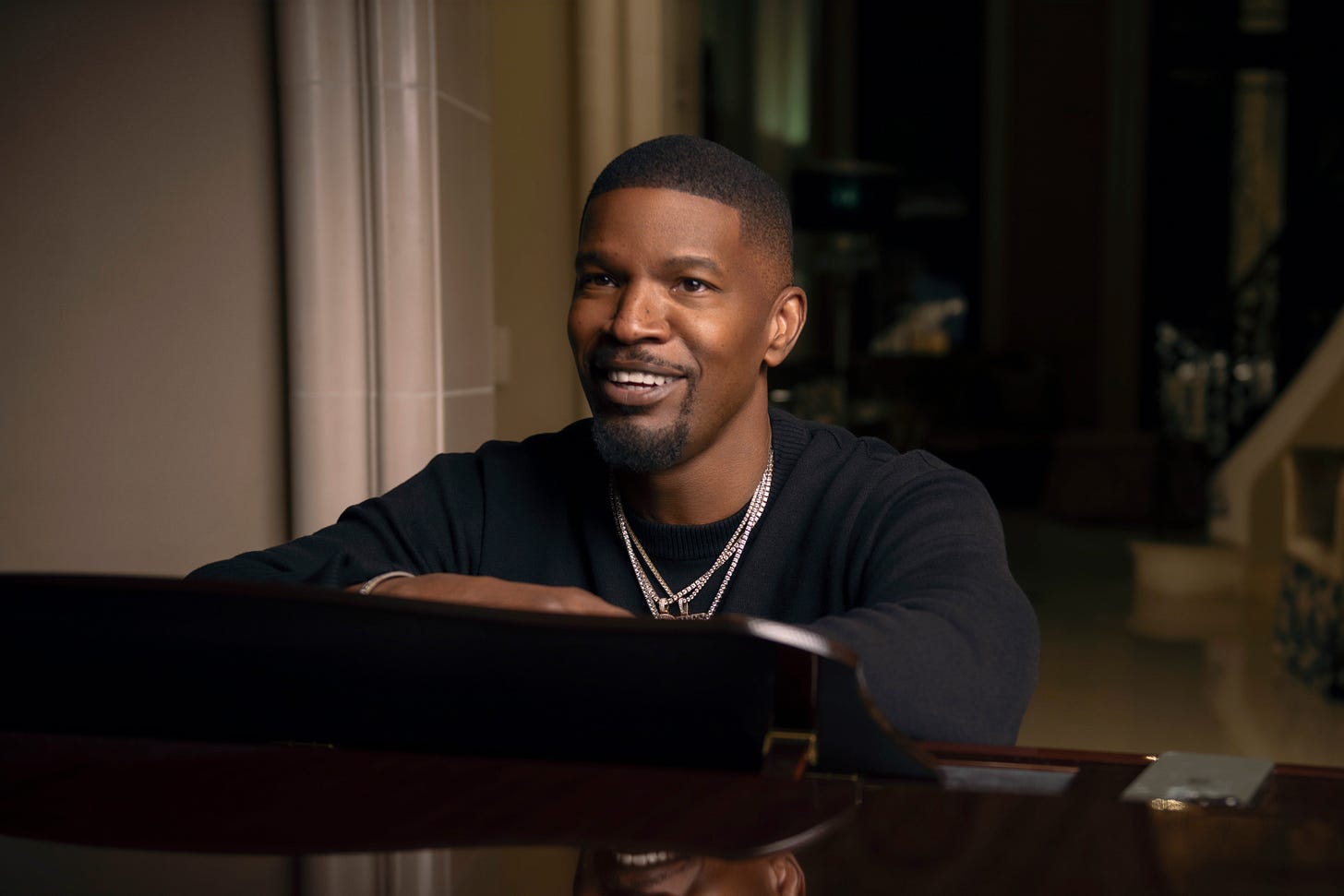
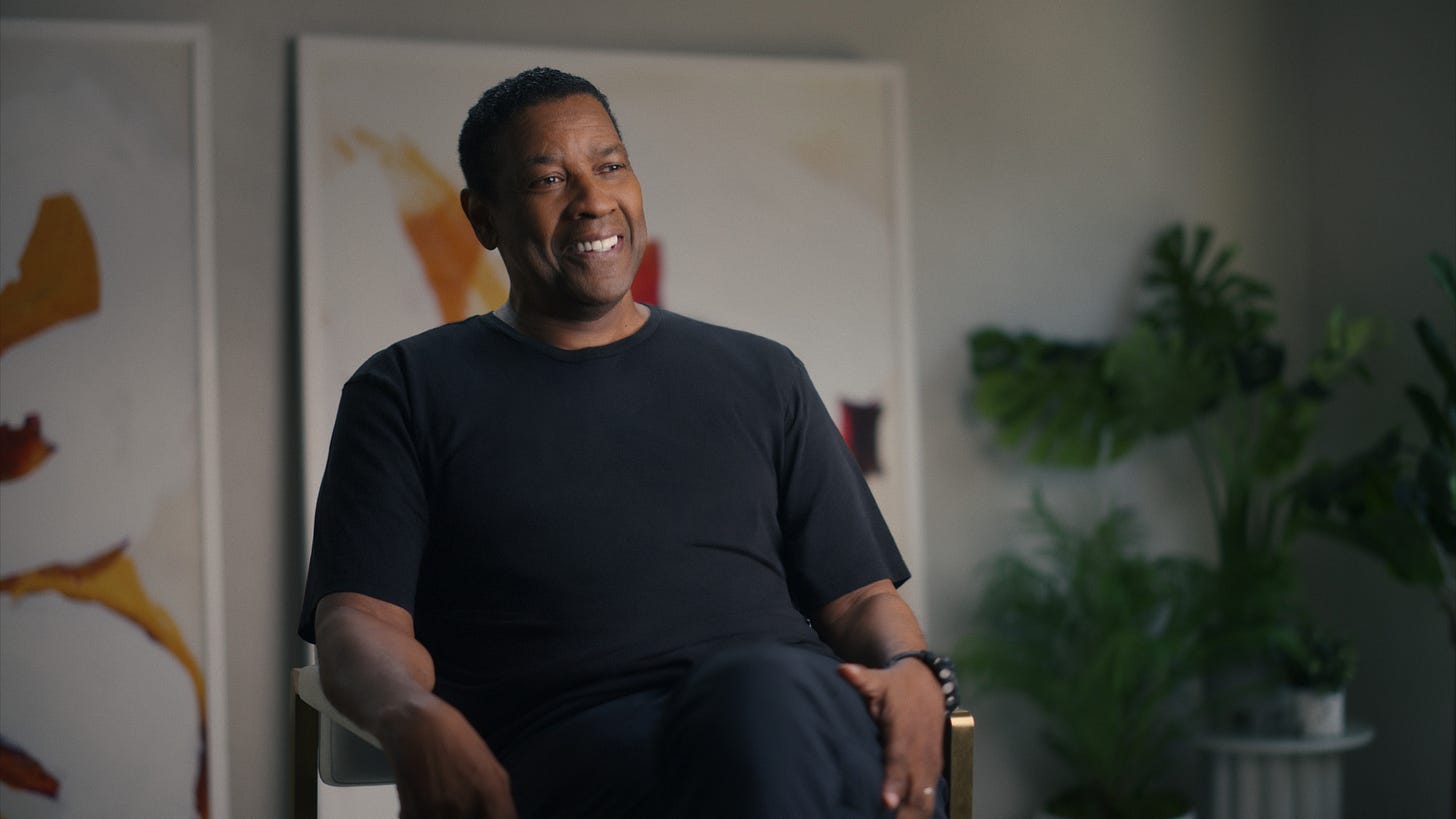
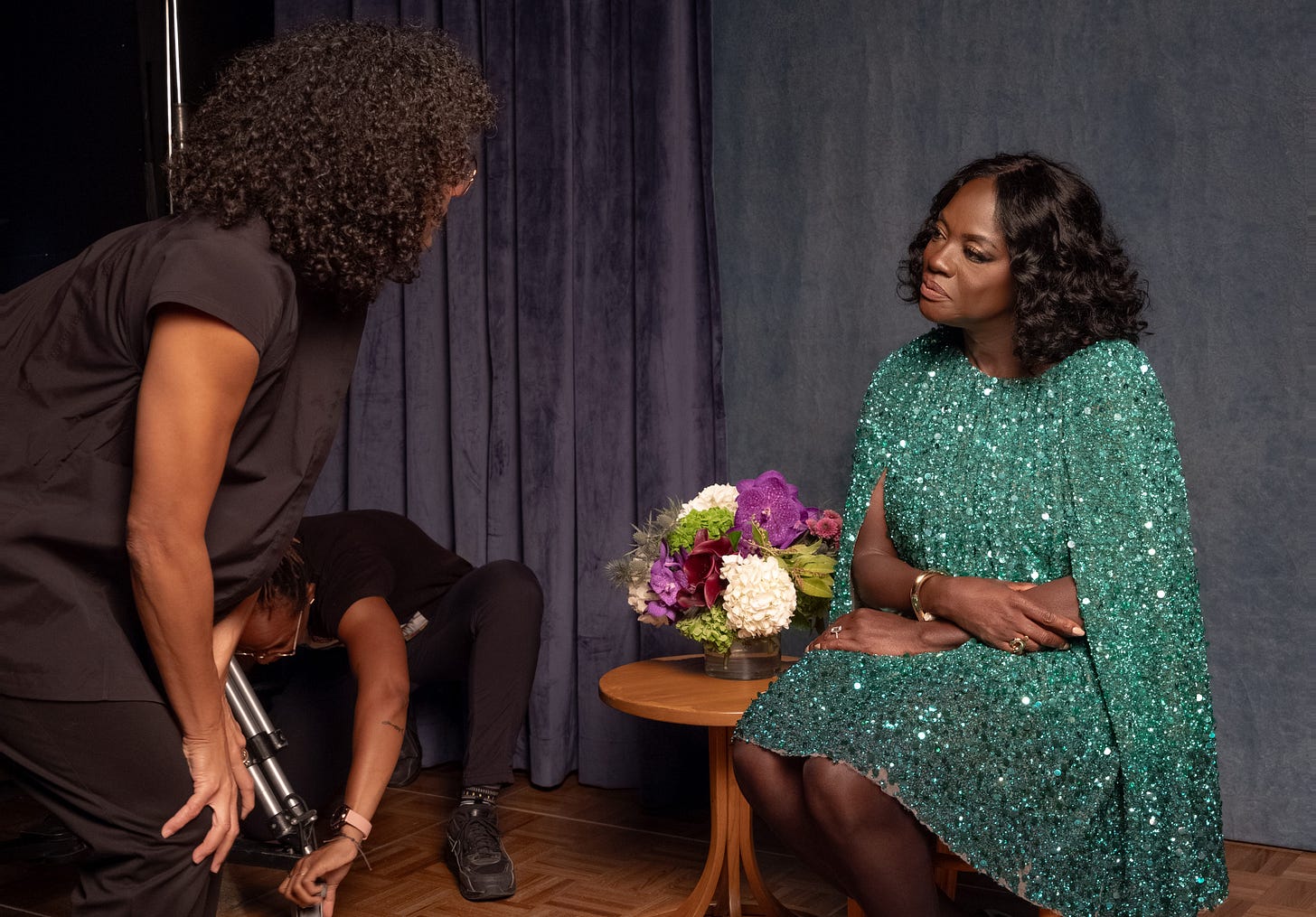
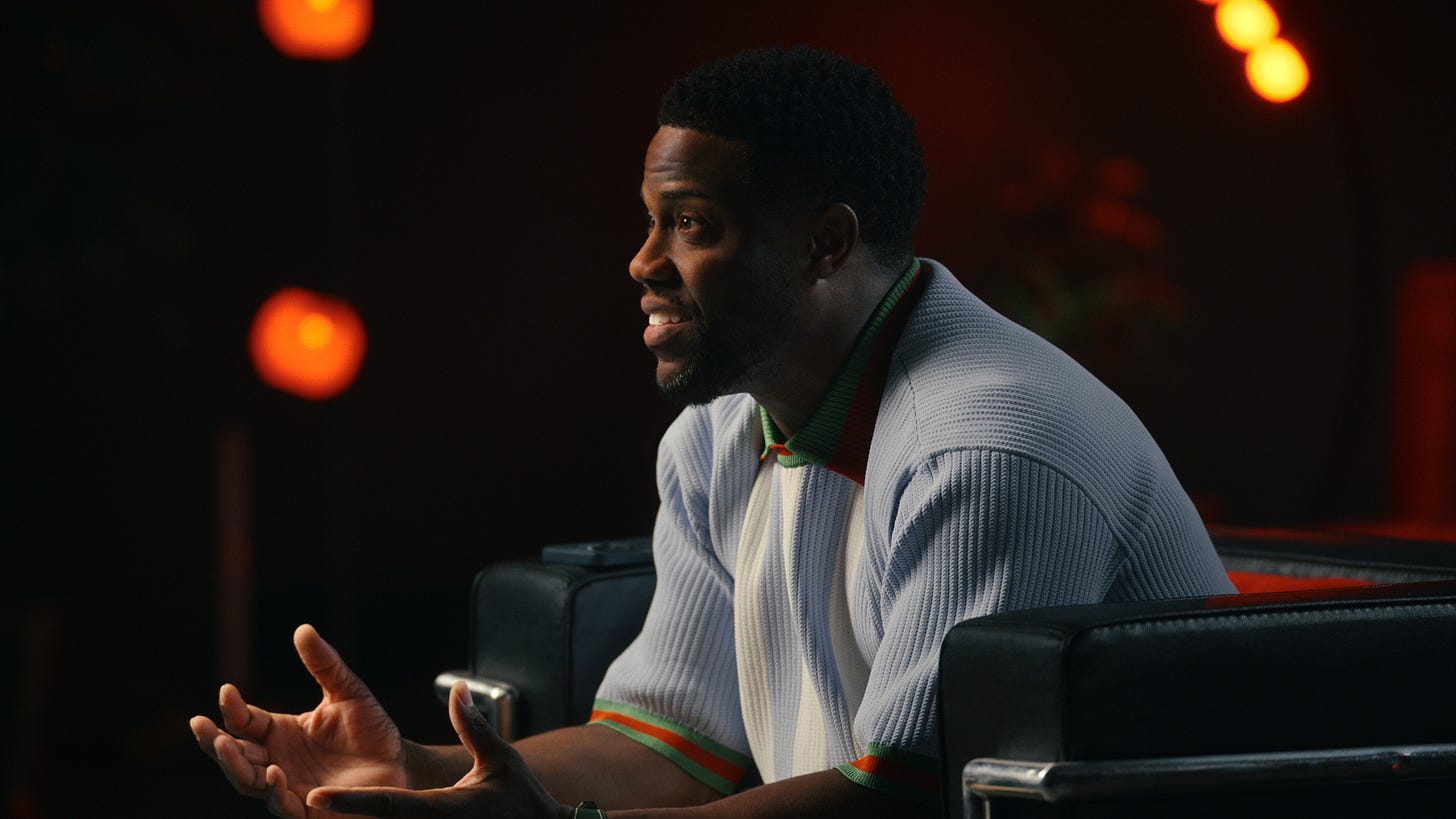
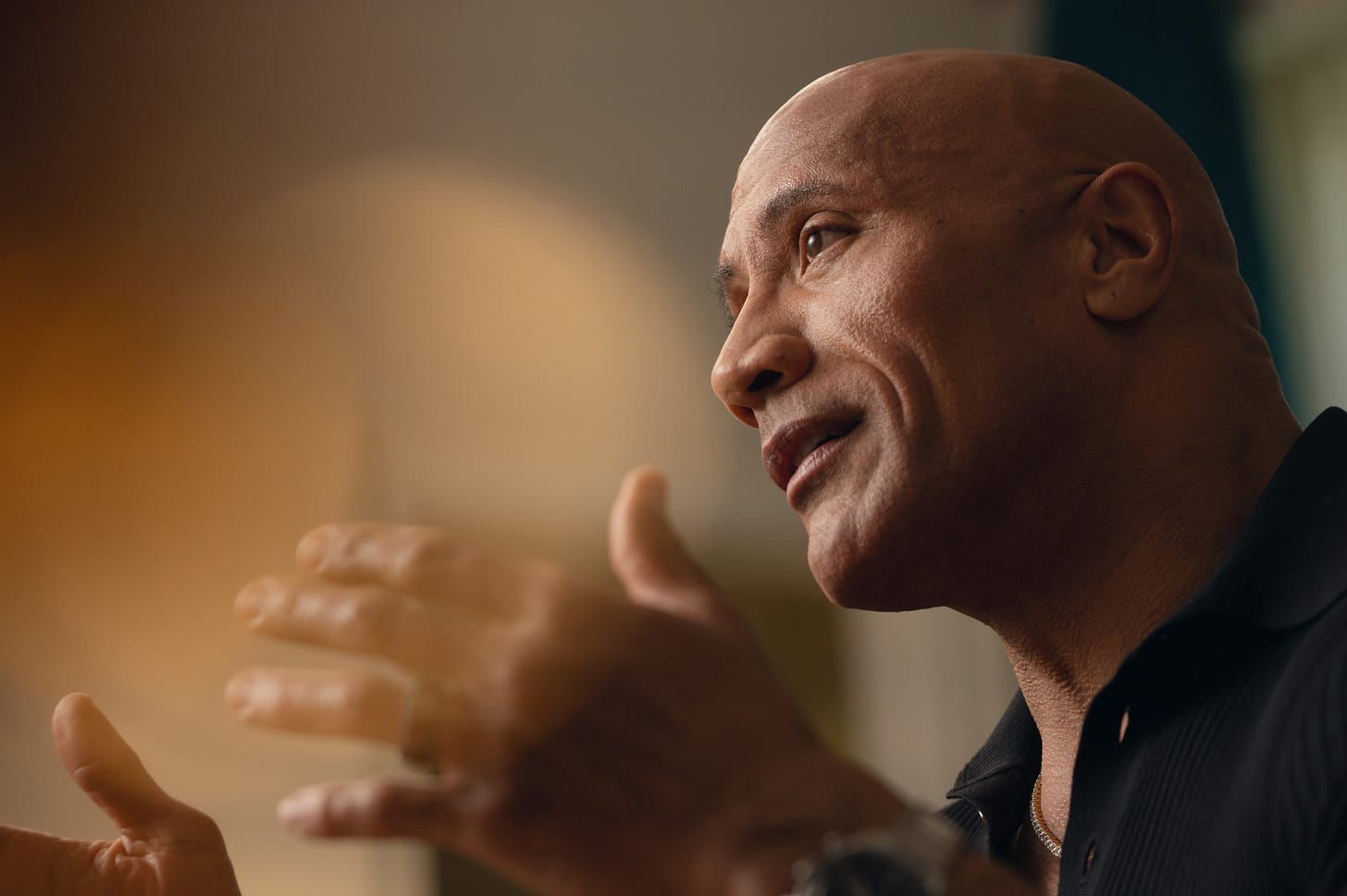
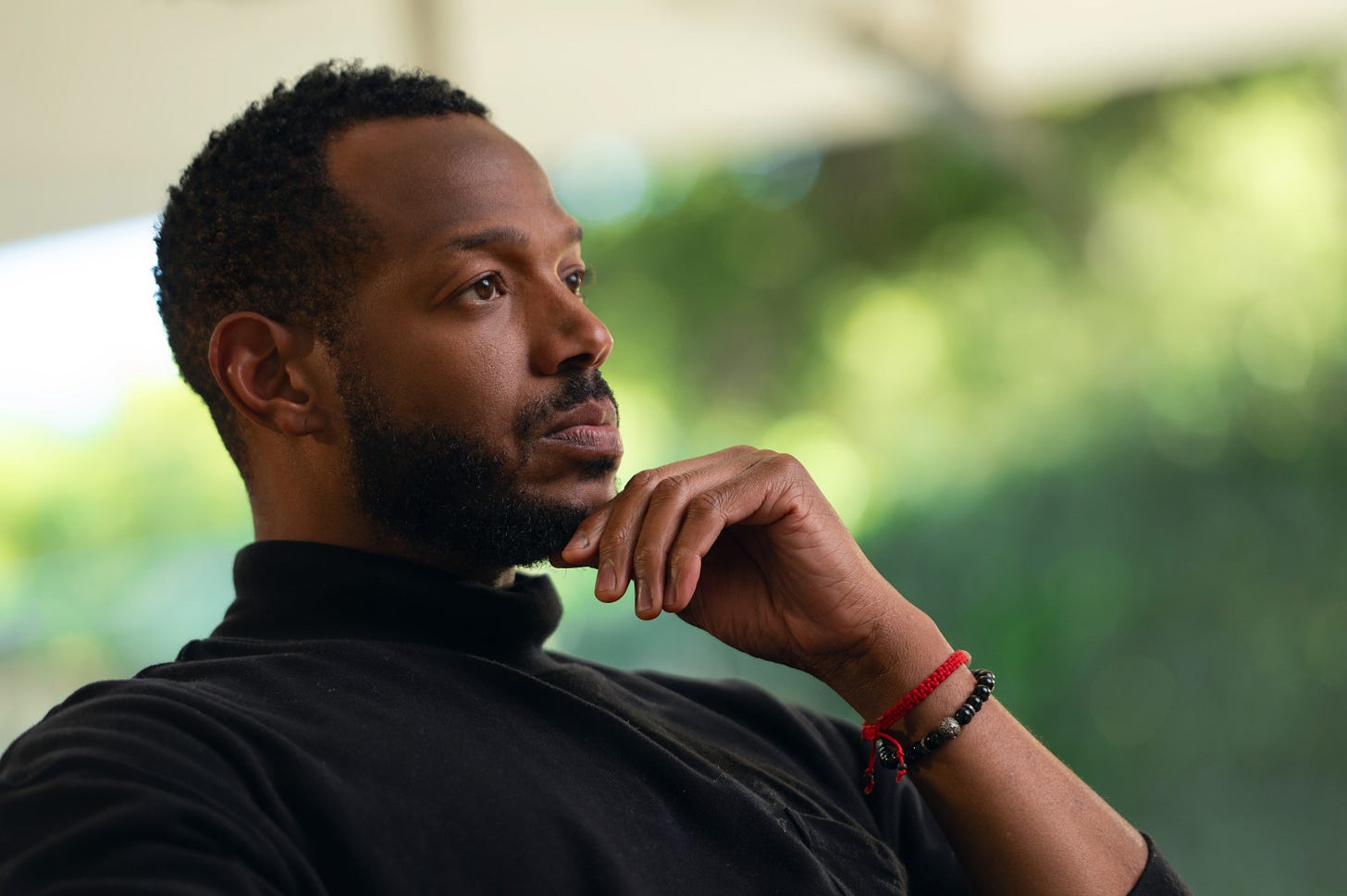
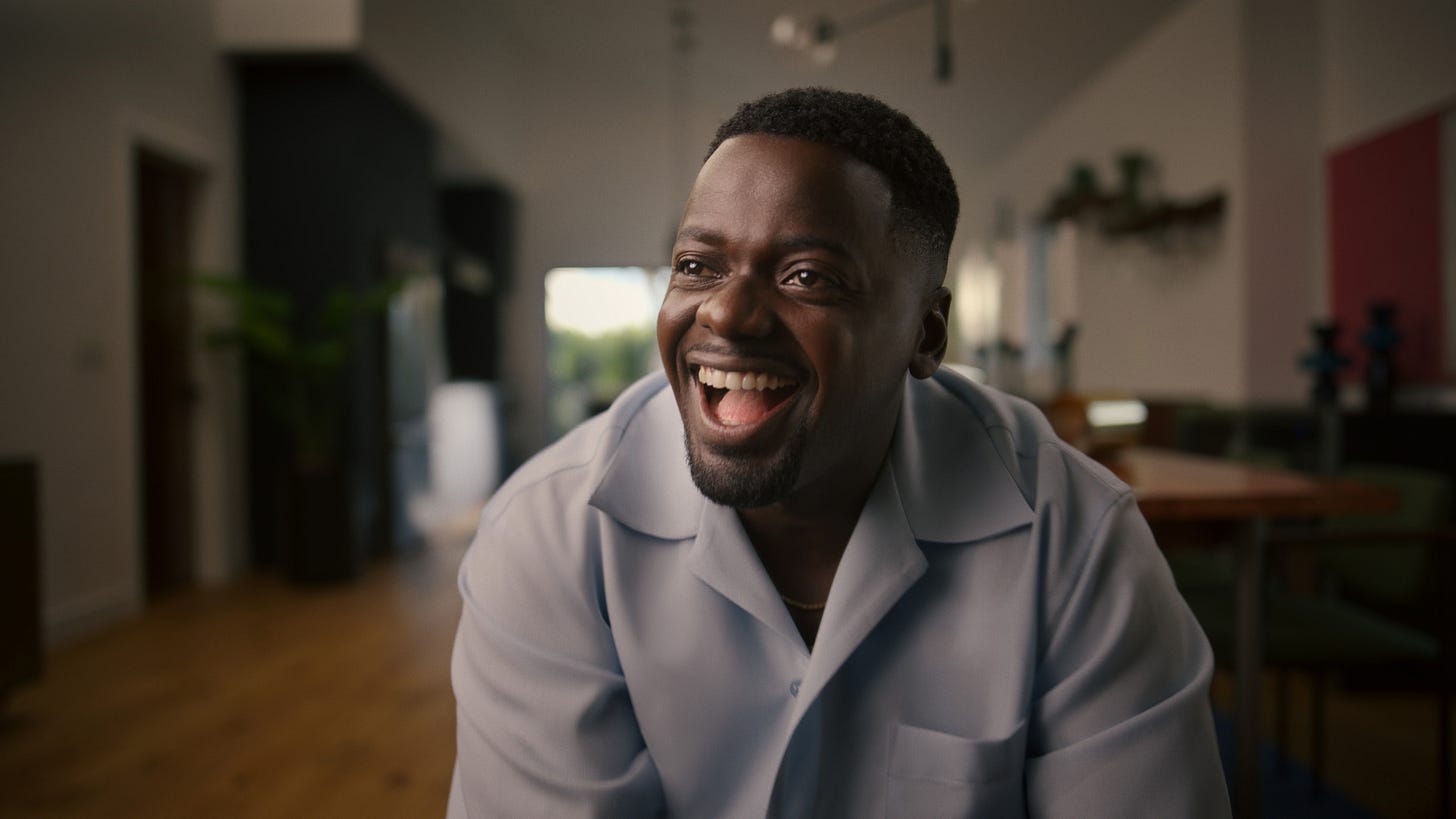
Gleaned a whole lot! Thank you Sylvia!🙏🏾💕
This was so good sis